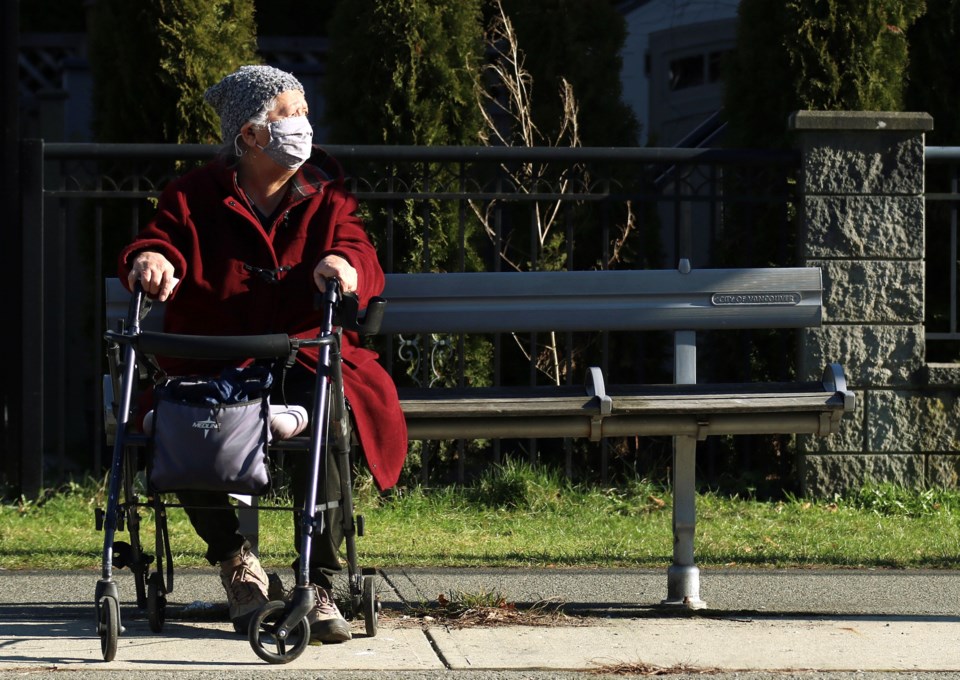Another 32 people died in the past three days in B.C., while infected with COVID-19, according to government data.
COVID-19-related deaths in the province have increased in the past month. The daily average in the first seven days of February is 13 per day.
Demographics for the people who died, and vaccination status were not immediately available, although the deaths happened in all five B.C. health regions.
That includes:
• 14 in Vancouver Coastal Health;
• nine in Fraser Health;
• five in Island Health;
• three in Interior Health; and
• one in Northern Health.
Serious COVID-19 infections include 987 people in B.C. hospitals, of whom 141 are in intensive care units (ICUs).
Counts for newly discovered cases have lost value as an indicator of how widespread COVID-19 is in B.C. because vaccinated people with mild symptoms have been told to not get tested, and to simply self-isolate.
Regardless, health officials detected 3,287 new infections in the past three days, including:
• 843 in the past day;
• 1,118 on Feb. 6; and
• 1,326 on Feb. 5.
The 843 new known infections is the lowest daily total since Dec. 20, and the first time under 1,000 for a day since that date. The number of tests conducted on Sundays tends to be lower, leading to Monday counts that tend to be lower. Officials conducted 7,472 tests in the past day, which is the lowest reported total for a day in months.
The low total of new infections helped reduce the number of known active cases to 23,739.
Of the 333,925 known infections in the province so far during the pandemic, the government lists 306,419 as having recovered because they are no longer thought to be infectious. Some people listed as recovered, however, have lingering health problems.
Provincial Health Officer Dr. Bonnie Henry has recently been stressing that older people, particularly those older than 80 years, are by far more vulnerable for serious illnesses.
That is why it is a concern that there are now 57 active outbreaks at health-care facilities or seniors' homes – a net total of one fewer than on Friday. There is significant churn in the known facilities with outbreaks, as 11 new outbreaks were discovered in the past several days, while 10 were declared over.
Unvaccinated people remain more likely to be infected, and to suffer serious disease from COVID-19 than those who have had vaccine jabs. The proportion of cases and hospitalizations among the unvaccinated, however, is much less in the current Omicron wave of the disease than it was during the previous Delta wave.
Between Jan. 28 and Feb. 3, people not fully vaccinated accounted for 24.8 per cent of cases, according to new government data. Between Jan. 21 and Feb. 3, those individuals accounted for 31.9 per cent of hospitalizations.
Provincial data show 4,498,488 B.C. residents have had at least one dose of vaccine, while 4,218,470 are considered fully vaccinated with two doses.
There were 76,537 people given booster, or third, doses of vaccine in the past three days, for a total of 2,305,999. The daily average number of new third doses is down significantly from the record 59,329 third doses provided on Jan. 13.
The B.C. government last year estimated that the province's total population is 5,147,712. Hence, Glacier Media's calculation is that 87.4 per cent of B.C.'s total population has had at least one dose of vaccine, and 81.9 per cent of the province's total population has had two doses. Nearly 44.8 per cent have had their booster doses. •



